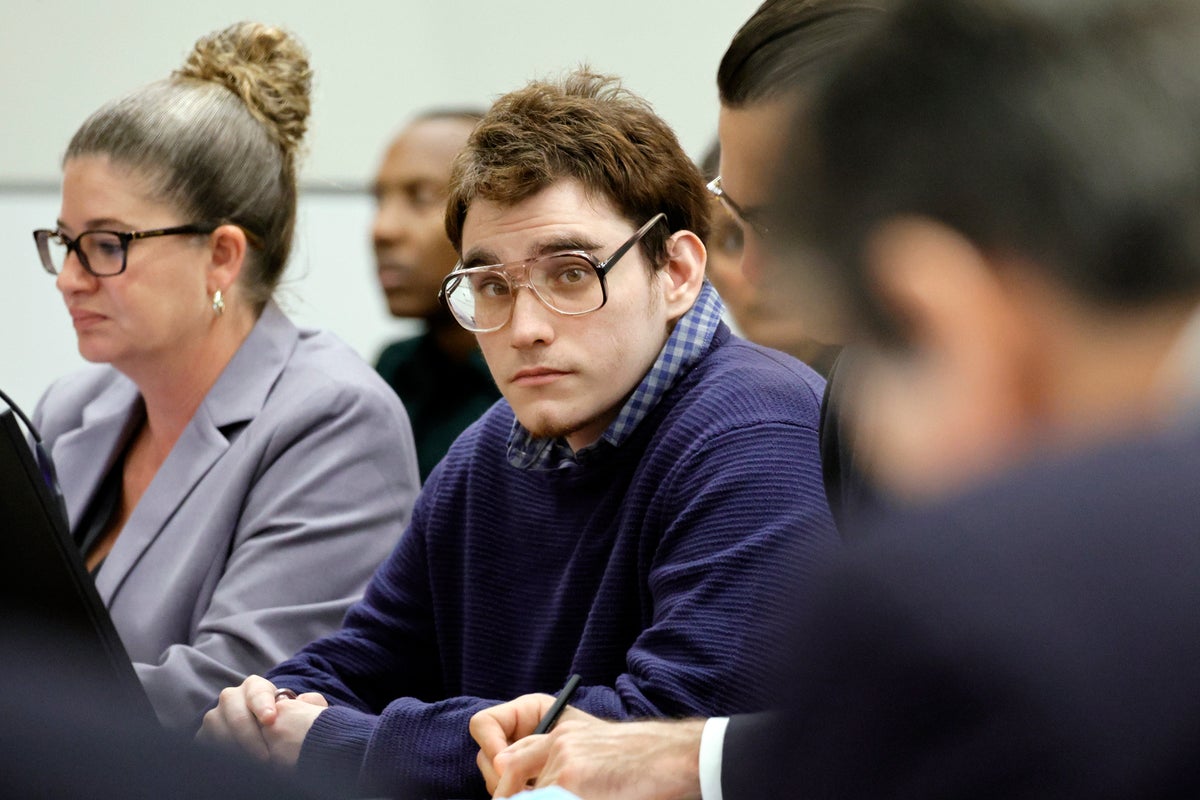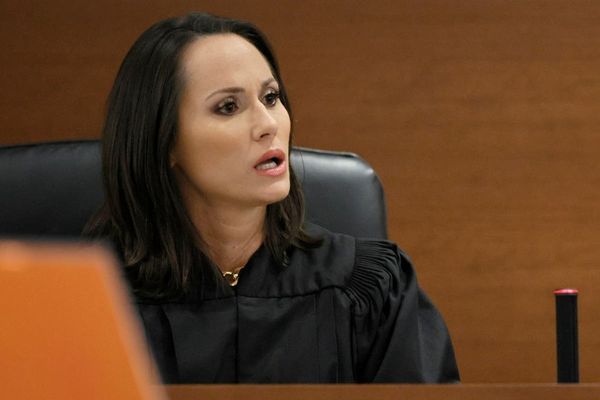
The judge overseeing the penalty trial of Florida school shooter Nikolas Cruz refused to step down Monday, rejecting a motion by his attorneys who accused her of being biased against their client and prejudicing the jurors who will decide if he should die for murdering 17 people four years ago.
Circuit Judge Elizabeth Scherer denied the motion, saying only it was legally insufficient. Scherer last week chewed out lead defense attorney Melisa McNeill and her team outside the jury's presence, accusing them of being “unprofessional” when they unexpectedly rested their case after only about 25 of the 80 witnesses they had told her and prosecutors they intended to testify had been called.
The defense said in court documents filed last week that those comments and ones the judge later made to the jury were “the zenith of the cumulative disdain” they allege Scherer has shown throughout the case toward Cruz and themselves. The defense had no obligation to call all its proposed witnesses or notify the judge or prosecution when they planned to rest, legal observers have said.
Prosecutors argued in court documents that Scherer's comments didn't rise to the level of demonstrating bias against Cruz. They cited a 1994 U.S. Supreme Court ruling that says a judge's “expressions of impatience, dissatisfaction, annoyance and even anger" against the defense are not grounds for stepping down.
If Scherer had stepped down, a mistrial would have been declared. The new judge would have required months of preparation before a new trial could be held.
Cruz, 23, pleaded guilty last October to murdering 14 students and three staff members at Parkland’s Marjory Stoneman Douglas High School on Feb. 14, 2018. His trial, which began with jury selection in April and testimony in July, is only to determine if he is sentenced to death or life without parole. For him to receive a death sentence, the jury must be unanimous.
Two attorneys who have monitored the trial said the defense team had no expectation that Scherer would step down — they just want her performance to be part of their appeal if Cruz receives a death sentence. To do that, they had to object now.
There was “absolutely no chance” Scherer would quit the case, said Bob Jarvis, a professor at Nova Southeastern University's law school.
“If she did, she would be admitting that she’s done a terrible job,” Jarvis said. Scherer, a former prosecutor, had never overseen a first-degree murder trial before being assigned the Cruz case.
David S. Weinstein, a Miami defense attorney and former prosecutor, said the defense is also hoping the motion “tempers the way (Scherer) speaks to both sides in open court.”
Starting with pretrial hearings that began more than three years ago, Scherer and McNeill have frequently sniped at each other over the judge's denials of defense motions and objections.
That sniping turned to shouting on Wednesday when, at the beginning of the court day, McNeill suddenly announced the defense was resting. The prosecution, having expected the defense case to last much longer, wasn't prepared to begin its rebuttal case.
That necessitated a two-week hiatus in the trial, causing Scherer to berate McNeill and her team.
“This is the most uncalled for, unprofessional way to try a case,” Scherer said. “I have never experienced a level of unprofessionalism in my career. It is unbelievable."
When McNeill accused Scherer of insulting her in front of her client, Scherer shot back, “You have been insulting me the entire trial," followed by a list of grievances.
The jury was then brought into the courtroom and told of the defense decision.
“If I would have known earlier this was going to be happening, I would not have dragged you in here,” Scherer told the jurors. She then backtracked, telling jurors they should blame her for any delays.
Too late, the defense said in its motion — Scherer had already told the panel any frustrations they felt should be directed at them.
Scherer's courtroom statements revealed her “animosity toward (McNeill) is long held and has infected this entire trial," the defense argued unsuccessfully.
Before resting, McNeill and her team called teachers, counselors, doctors, family friends and experts in an attempt to demonstrate how his late birth mother’s alcohol abuse during pregnancy put Cruz onto a lifelong path of erratic, bizarre and often violent behavior that culminated in the shootings. They also tried to show that his adoptive mother, Lynda Cruz, became overwhelmed after her husband died when Cruz was 5.
The defense is trying to overcome the prosecution’s case, which focused on Cruz’s massacre as he stalked a three-story classroom building for seven minutes with an AR-15-style semiautomatic rifle. Lead prosecutor Mike Satz played security videos of the shooting and showed the rifle Cruz used. Teachers and students testified about watching others die.
Satz showed graphic autopsy and crime scene photos and took jurors to the fenced-off building, which remains blood-stained and bullet-pocked. Parents and spouses gave tearful and angry statements about their loss.
The trial is now scheduled to resume Sept. 27 and conclude the week of Oct. 10.









